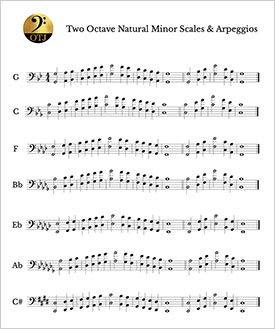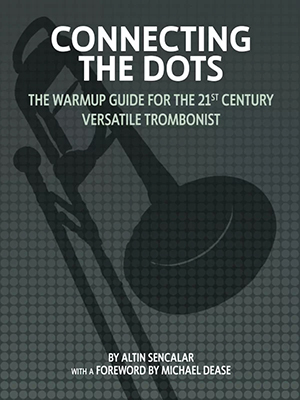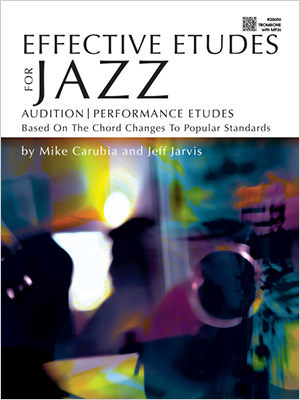
Feature Article

Two Octave Natural Minor Scales and Arpeggios
By Richard Human, Jr. • June 14, 2022After the major scales and arpeggios, the natural minor scales and arpeggios, or Aeolian mode, are the second-most used scales and chords in Western classical music, jazz, and rock. If you have memorized your major scales and arpeggios and know their key signatures, then you already know the natural minor scales and arpeggios!
Recent Reviews

Connecting the Dots: The Warmup Guide for the 21st-Century Versatile Trombonist
By Dean Olah • December 13, 2023 in LiteratureConnecting the Dots: The Warmup Guide for the 21st-Century Versatile Trombonist authored by Altin Sencalar, is a thorough and informative resource that aims to revolutionize trombone teaching for learners in the modern era.

Effective Etudes for Jazz: A Review
By Kyle Larson • May 20, 2023 in LiteratureThis book consists of eighteen jazz etudes written in styles ranging from blues shuffle to rock. It aims to help the learner gain knowledge and experience in improvising and playing with swing articulations.

Portraits - Technology and Bones: A Review
By Peter Fielding • January 14, 2023 in RecordingsPortraits - Technology and Bones is a wonderful mosaic that will appeal to many trombonists and contemporary music enthusiasts. The album continues Alix Tuscou's Technology and Bones work, affirming his excellence as a bass trombonist, composer, mixer/producer, and all-around collaborative artist.
Trombone News
- The U.S. Army Ceremonial Band: Bass Trombone
- Lecturer in Music - Low Brass at Truman State University
- Concert Band Trombone Vacancy: The United States Army Field Band From Washington, DC
- The United States Air Force Band of the Golden West will host live auditions for Trombone on August 11th, 2023.
- "The President's Own" United States Marine Band will hold auditions for Trombone August 21, 2023.
- "Speaking Soundly" featuring Joseph Alessi